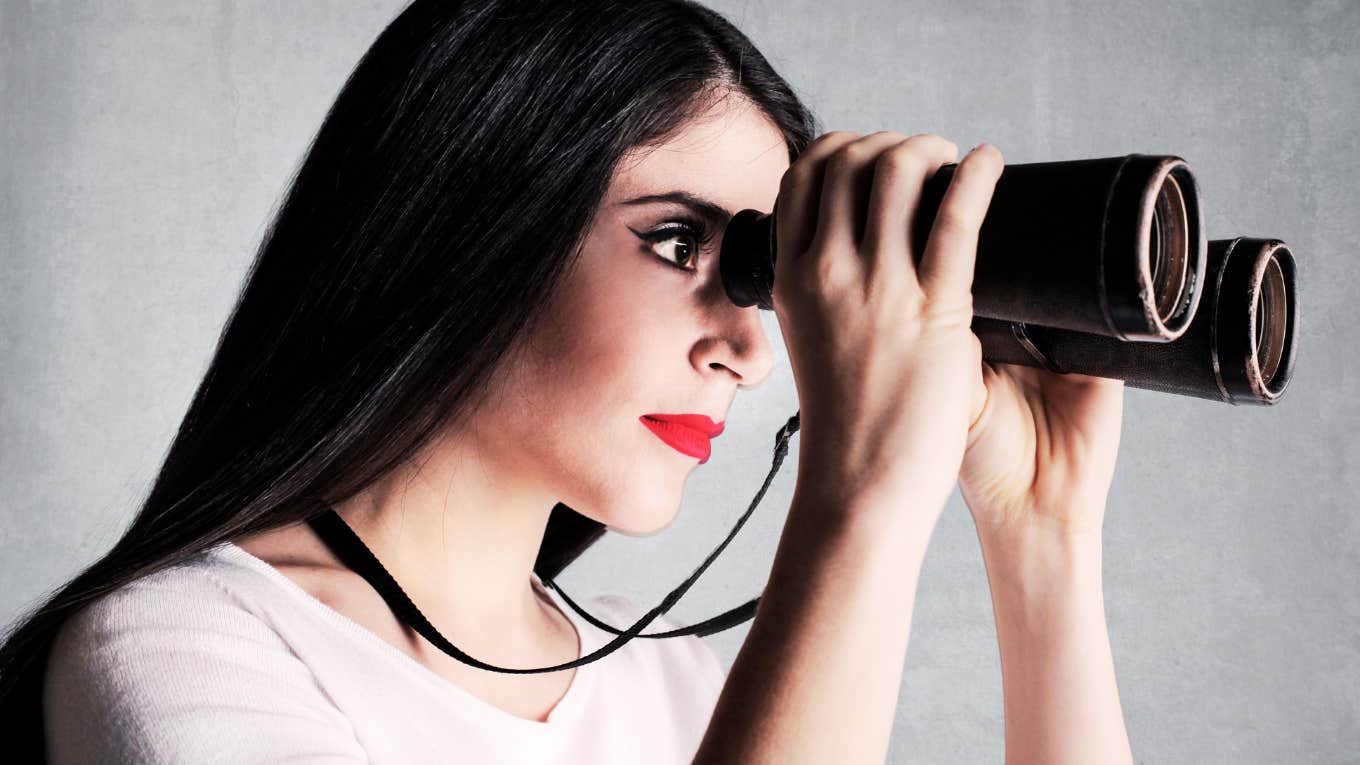Former Detective Says People Who Are Good At Reading People Always Use These 6 Tricks
Former private eye reveals the tricks to reading people without saying a word.
 Marisa9 | Canva
Marisa9 | Canva Humans are wired to read body language:
- We can read human facial expressions in 1/10th of a second.
- We form an initial impression of someone in 5–7 seconds.
- Words account for 7% of communication, while body language and tone account for the rest.
According to a study by the Massachusetts Institute of Technology, the outcome of negotiations could be predicted by body language alone 87% of the time. You’ll generally have verbal cues and body language to read when interacting with people. Your ability to predict outcomes could be well over that 87%.
The problem is that most of what we believe about reading people is likely wrong. It’s wrong because we’re not taught to read people, and our information comes from Law and Order reruns.
Disclaimer: While I’ve conducted more than 1,000 interviews and have a background in psychology, reading people is both art and science. It’s a skill predicated on probability, and nothing is ever certain.
A former detective says people who are good at reading people always use these tricks:
1. Develop a baseline for someone's normal behavior
 insta_photos / Shutterstock
insta_photos / Shutterstock
If you speak to someone who won’t look you in the eye and bites their fingernails, are they being deceptive? Well, is that normal behavior for them? The answer to that question determines whether or not it might mean something.
Every interview and interrogation I did started here. I’d try to spend as much time as practical observing them. I was looking at their mannerisms, demeanor, and gestures. I’d listen to their tone and the tempo of their voice. The more you observe someone, the more it’ll stand out when they act contrary to their norm. We do this with our partners all of the time and it tells us when something is wrong.
These clues can be subtle. Developing a baseline will allow you to spot deviations. Spotting deviations can tell you when something is off.
2. Look for clusters of suspicious behavior
 fizkes / Shutterstock
fizkes / Shutterstock
Even if you have observed baseline behavior for someone, spotting a single deviation doesn’t mean much. Any clue or deviation on its own could be a fluke.
Just before I and Father of the Year made snow angels together, I saw a behavior cluster that spelled trouble. I noted his stiff posture, the looking past me, the clenched fist, and furrowed brows. That cluster of behavior was a warning sign. The words he used didn’t matter — his body language said a fight was coming.
The practice of looking for clusters of behavior to read people refers to the idea that a single isolated nonverbal cue or action doesn't necessarily reveal someone's genuine emotions or intentions.
Still, a 2010 study concluded that when several related behaviors occur together, it provides a more reliable insight into their internal state—analyzing patterns of behavior rather than relying on singular gestures.
3. Pay attention to the quiet person in the room
 Tavarius / Shutterstock
Tavarius / Shutterstock
During my time as a police officer, I went on to become a detective and received a few promotions. That meant that I had to attend meetings — lots of them. The most influential people in those meetings were typically reserved and confident.
They weren’t loud or demanding. Confident people don’t need to be loud, and they don’t need to be the center of attention. They usually don’t bully or talk over others. Confidence is quiet, whereas insecurity never shuts up.
You can generally tell who’s at or near the top of a given hierarchy by the way other people interact with them. With some practice, you can start to see the hierarchy in any meeting or group setting you find yourself in.
4. Listen closely to someone's voice pitch and tempo
 foto-lite / Shutterstock
foto-lite / Shutterstock
Voice pitch is often an indicator of confidence. You notice extreme versions of this when someone is nervous about public speaking and their voice cracks.
Controlling tone fluctuation is challenging as it’s often tied to emotion. Tone can be louder and faster when agitated, slower and quiet when relaxed, and higher in pitch when anxious or nervous.
Listen to most CEOs speak and notice their tone can usually be described as comfortable and conversational. Novice speakers often speak too quickly, as if trying to get it over with or not wanting to draw attention to themselves.
Voice pitch is a key indicator of a person's perceived personality traits, with lower-pitched voices generally associated with dominance, confidence, and power.
In contrast, a study published by the Journal of Research in Personality found that higher-pitched voices can be perceived as more nervous, submissive, or less authoritative. This allows people to subconsciously read others based on their vocal pitch, influencing how they are perceived in social interactions.
5. Practice patience when assessing people
 Jacob Lund / Shutterstock
Jacob Lund / Shutterstock
The art of reading people requires patience. It involves taking the time to understand people’s motivations and actions rather than jumping to conclusions.
Patience allows for deeper connections and a better understanding of people’s authentic characters.
6. Heed someone's posture and body language
 M Stocker / Shutterstock
M Stocker / Shutterstock
Posture conveys information like a billboard. Standing tall with shoulders pulled back exudes confidence. Rounding the shoulders and hunching over conveys timidness. Fidgeting and avoiding eye contact also convey timidness or discomfort. Crossed arms can often signify resistance toward you or your idea.
An odd phenomenon known as “mirroring” can occur when people interact. It’s common when you speak with someone who agrees with you and feels connected to you somehow.
Mirroring is when you make a motion or change to a certain position. For example, if you cross one leg over the other while seated, the person mirroring you will do the same a short time later.
This means observing someone's body position to gain insight into their emotional state, confidence level, and overall disposition. A person's posture can often reveal underlying feelings like openness, anxiety, or power dynamics without them consciously saying anything.
A study published in Culture and Organization concluded that a confident posture typically includes a straight back, open chest, and relaxed shoulders. In contrast, a more closed or defensive posture might involve slouching or crossed arms.
The benefits of honing your people-reading skills extend far beyond avoiding a snowy fistfight with a grown man (although you can trust me when I say that’s certainly a perk).
It can help you negotiate, build stronger relationships, and even sharpen your interview skills in your professional life. In your personal life, it can improve your communication with loved ones, anticipate problems, and even help you diffuse issues before they arise.
Joshua Mason is a former police detective and public safety leader turned writer. His weekly stories on Medium are dedicated to change, leadership, and life lessons.

